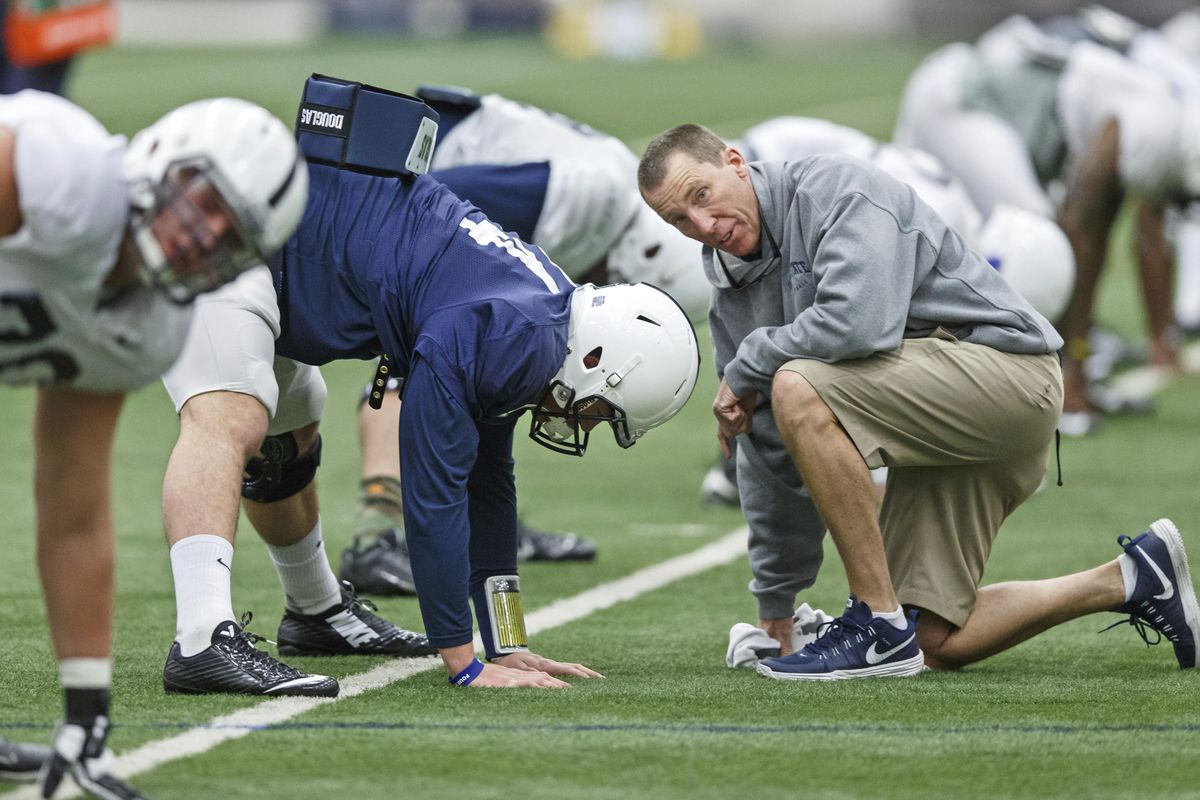In Penn State hazing death case, spotlight turns to frat adviser deemed ‘captain of the ship’

When the members of Beta Theta Pi brought an unconscious, corpse-like Timothy Piazza up a flight of basement stairs on Feb. 2, their resident adviser took a look at the drunken spectacle, then turned around and went back to his room, a lead investigator told a court this week, according to the Associated Press.
In short order, Piazza died from the injuries he got in a headfirst tumble down those stairs – and, prosecutors argue, from his frat brothers’ unwillingness to call 911. Sixteen Penn State students who were members of Theta Beta Pi are charged in connection with Piazza’s death.
Now, the judge in a preliminary hearing wants to know what Tim Bream – the man who was supposed to be advising the young men – was doing during the hazing incident that turned deadly.
Defense attorneys have asked Judge Robert Sinclair to enforce a subpoena against Bream, according to the AP. They want to question him about the death of Piazza, who died after drinking a toxic amount of alcohol and falling several times.
The attorneys say they’ve been unable to serve the subpoena or reach Bream through his attorney, university lawyers or by going directly to his building, according to the AP.
Defense attorney Leonard Ambrose, who represents frat brother Joseph Sala, argued in court that Bream could speak about what happened “as well as his permission that these activities could occur,” the AP reported. If the resident adviser had given consent to what happened, it pokes holes in prosecutors’ assertions that the frat brothers were reckless.
Ambrose described Bream as the “captain of the ship,” and the older, responsible figure the fraternity members looked to, according to the Centre Daily Times. Bream also may have been behind a “cover up,” urging frat members to delete text messages.
“This isn’t a hide-and-seek-type thing,” Ambrose said in a news conference after the hearing on Friday, the newspaper reported. “If you can defeat the process by just moving around, then a citizen has no right to a subpoena. And that’s what we’re seeking to enforce, and we’re very thankful the court is enforcing that right.”
Some of the frat members are accused of involuntary manslaughter and aggravated assault; others face charges of evidence tampering and alcohol violations.
Sinclair has to determine if there is sufficient evidence to send the case to county court for a trial. The hearing is expected to wrap up early next month.
Clarity about Bream’s role may come on Aug. 30, when Sinclair has scheduled a contempt of court hearing, according to the Centre Daily Times. There, Bream must explain why he has been uncooperative.
Bream was hired in 2012 as the head football athletic trainer and the director of athletic training services for all university sports, according to the university’s athletics website. He had previously been a trainer for the Chicago Bears, and had stints with other university athletic departments dating back to the 1980s.
Still, it’s unclear why a university employee with NFL experience was at the raucous party and what, if anything, he said about Piazza’s injury and death.
Bream did not respond to emails from the Washington Post seeking comment. In an email to the AP, he said he would not comment or be interviewed, following his attorney’s advice.
His athletic trainer duties had nothing to do with his resident adviser post at Beta Theta Pi, which has been permanently banned from Penn State following the deadly hazing incident.
On that night, Piazza and other pledges were ordered to go through a gantlet of drinking stations at the party, quickly drinking vodka or shotgunning beers, according to grand jury investigation findings released by the Centre Count, Pennsylvania, district attorney.
At one point, a staggering Piazza was helped to a couch. Later, “severely staggering,” he tried to open the front door, then made his way to the basement steps a little before 11 p.m.
He was found unconscious at the bottom of the stairs, according to the findings. Shortly before midnight, a fraternity brother wrote on a group message that Piazza “might actually be a problem. He fell 15 feet down a flight of stairs, hair-first, going to need help.”
At about 1 a.m., fraternity brothers put a backpack full of books on Piazza, who had thrown up and was twitching, in an attempt to keep him from rolling onto his back, according to the grand jury’s findings. After 3 a.m., Piazza tried to stand but fell, hitting his head on the floor. He fell again at 4 a.m. At 5 a.m., he fell, hit his head on an iron railing and landed on a stone floor. He got up, trying to get to the front door, but fell and hit his head on the door. Fraternity brothers stepped over him, according to the investigation.
After 7 a.m., Piazza fell down the basement stairs again. When fraternity members found him, unconscious, cold to the touch, and with blood on his face the next morning, it was more than 40 minutes before they called 911, the investigation found.
Piazza died the next morning from a fractured skull and a ruptured spleen. Doctors reportedly told his parents that he would have survived if he’d been brought to the hospital sooner.